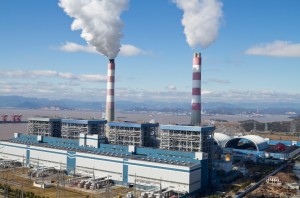New blog address
The Climate and Environment at Imperial blog has moved. Visit our new blog.
The Climate and Environment at Imperial blog has moved. Visit our new blog.
Professor Jo Haigh, Co-director of the Grantham Institute reports back from the Climate Parliament meeting in Lucerne, 12 June 2015.
 I have just found a seat on the train from Lucerne to Zurich airport. It is absolutely packed, I suppose, with people going away for the weekend. Staring through the window at the snow-capped mountains, and having spent the day at an inspirational conference set by the beautiful lake, I am wondering quite why anyone would want to leave.
I have just found a seat on the train from Lucerne to Zurich airport. It is absolutely packed, I suppose, with people going away for the weekend. Staring through the window at the snow-capped mountains, and having spent the day at an inspirational conference set by the beautiful lake, I am wondering quite why anyone would want to leave.
I have been at a meeting of the Climate Parliament. I only learned of this organisation recently but it is rather splendid – a group of legislators from across the world who are concerned about climate change and looking to influence governments to act. Seventy attendees came together to discuss the potential for a Global Energy Internet: an international electricity grid based on regional renewable energy sources.
Attendees were diverse – including MPs from four continents, industrialists, academics and representatives from energy and climate agencies. Simultaneous translation was provided between French, Spanish, Chinese and English, although that can’t have covered all the first languages represented. Fortunately my talk was first up so I could then concentrate on the rest.
For me a highlight was Li Junfeng, Director General of the Chinese National Centre for Climate Change Strategy and International Cooperation, who spoke on China’s energy demands, provision and ambitions for decarbonisation. He spoke of a “solar Silk Road for the 21st century” and noted the need for revolutions in energy production and for technical innovation with international cooperation on R&D in renewables: “Helping China is helping the World” he said.
Lei Xianzhang, of the State Grid Corporation of China, was up next discussing some of the technical issues and describing the construction of new wind and solar plants (grown by factors of 37 and 350 respectively since 2006) as well as very long (thousands of kilometres) high voltage DC transmission cables.
 The political and technical challenges which have faced attempts to construct an energy grid across the Middle East and North Africa were elaborated by Tareq Emtairah, Director of the Centre for Renewable Energy and Energy Efficiency in Cairo. In the absence of an electricity market there has been very little exchange coordinated to date, but the delegates from Jordan, Morocco and Tunisia remained upbeat.
The political and technical challenges which have faced attempts to construct an energy grid across the Middle East and North Africa were elaborated by Tareq Emtairah, Director of the Centre for Renewable Energy and Energy Efficiency in Cairo. In the absence of an electricity market there has been very little exchange coordinated to date, but the delegates from Jordan, Morocco and Tunisia remained upbeat.
National energy security concerns were foremost in the minds of colleagues from Senegal and Peru. Efforts to connect to international grids were seen as a second priority. I could see their point, but perhaps they were reassured that the proposed networks could be established to the advantage of all.
Damien Ernst, an energy economist from the University of Liège, delivered an inspirational message: his calculations suggest that large scale facilities of solar and wind energy, with long transnational interconnections can provide energy cheaper than fossil fuels. Construct the grid first, he declares, and the incentive to develop renewables will follow.
It is a shame I have to miss tomorrow’s discussions, which will focus on finances and start to develop an action plan, but I have to attend my father’s 90th birthday party. If I live to 90, or 80, or even 75(?) perhaps I will see established an international energy internet. It is a fantastic vision.

by Roan du Feu, PhD student, Science and Solutions for a Changing Planet
The marine renewable energy sector is poised and ready, waiting to harness the power of tides and waves with underwater tidal turbines and floating wave energy converters. A shift to renewable energy sources is essential to reducing global carbon emissions, but what are the consequences of these new technologies? Are we prepared for the effects of filling our already fragile oceans with rows of large, moving structures? Will we cause irreparable damage? Or might there even be some positive effects?
These are all questions relevant to my thesis and so, for two weeks, I attended a course on Marine Renewables and the Environment held at SAMS (the Scottish Association of Marine Science). The aim of this course was to explain the interactions between the abundant and varied ecology of the seas and the devices that will inevitably be placed in the midst of them.
SAMS is one of the oldest oceanographic organisations in the world and one of Europe’s leading research centres for marine science. It takes a great interest in marine prosperity and sustainability, climate change and, crucially, renewable energy. SAMS is located next to Dunstaffnage castle on a wild and exposed spit of land just north of Oban, Scotland, where the sinuous Loch Etive breaches into the grand, island-studded Firth of Lorn.

Over the course of two weeks we studied all forms of marine life. The flora ranged from the tiny, sometimes unicellular, phytoplankton and drifting algae, to the larger seaweeds. The fauna, a rather more extensive group, covered zooplankton, sponges, hydrozoa (including jellyfish and coral), segmented worms, molluscs, crustaceans, echinoderms (starfish and urchins, for example), bryzoans (moss animals), ascidians (sea squirts), fish, and of course the many marine mammals and seabirds that live and feed in the marine environment.
Something that struck me was the vast disparity, between the variety of marine flora and fauna. The dependence of plants on light to photosynthesise is at least partially responsible. The turbidity of British seas means that larger plants can only survive to a depth of about 25m, and even phytoplankton only descend to about 50m. Marine fauna on the other hand have no such limit, and can thrive many kilometres below the surface.
Marine renewable devices can have both negative and positive impacts on these many types of life. But what was made very clear was the great uncertainty in the extent and degree of almost all of these effects.
The most commonly discussed consequence of tidal turbines is blade strike. This represents a potential issue for marine mammals, large fish / sharks, and various types of diving bird, many of which dive well below the depth at which you might expect to find a turbine (guillemots, for example, have demonstrated the almost unbelievable ability to dive up to 180m below the surface in their search for fish). The extent of this problem is completely unknown, it is possible that such animals will be adept at avoiding turbine blades, but it is possible they will not.
T hen there is the noise produced during both the construction and the operation of such devices. This could potentially scare off or disorientate some marine mammals (or during pile driving even deafen them) while possibly attracting other more curious species. In this case mitigation techniques such as using bubble shields to damped sound during construction could the limit negative effects.
hen there is the noise produced during both the construction and the operation of such devices. This could potentially scare off or disorientate some marine mammals (or during pile driving even deafen them) while possibly attracting other more curious species. In this case mitigation techniques such as using bubble shields to damped sound during construction could the limit negative effects.
Another interaction that was heavily discussed was that of the artificial reef effect. Whatever the marine renewable device in question, one immediate change to the local environment will be the addition of large, sometimes complex, structures which provide a new, different habitat type upon which life can and will grow, often significantly increasing the biomass of the area.
This is not necessarily a good thing as structures in the water have been known to provide stepping stones for invasive species that are otherwise unable to cross wide channels. This influx of both floral and faunal growth will attract fish which in turn will attract marine mammals and seabirds into a, potentially, dangerous area. In fact, considering that fish also like to hide in the shelter given by these structures, and that such areas will likely become no fishing zones it seems probable that a marine renewable development could become a veritable haven for fish. Whether the knock-on effects of this, on other marine life or indeed on fishermen, are positive or negative is unknown.

The main thing I am now aware of is the high levels of uncertainty in expert opinion. I had assumed that putting devices in the sea would be an inherently bad thing for the local environment (although good for the world at large), but is it? Possibly, sometimes, but we don’t yet know. Then I was told of all the life that would actually be drawn to such devices, surely that’s good? Possibly, sometimes, but we don’t yet know.
The introduction of marine renewables to the seas is inevitable. It is one of many things that has to happen if we hope to combat the inescapable advance of man-made climate change. But I have learned that it has to be done with care, it has to be monitored well, and the information gathered has to be put to use. It seems possible that such technology could be implemented without contributing to the decline of the oceans, but only as long as it is done in an appropriate and measured manner. For what is the point in trying to save the planet if we end up destroying it in the process?
Read more about Roan’s PhD project
The Climate and Environment at Imperial blog has moved. View this post on our new blog
by Neil Hirst, Senior Policy Fellow, Grantham Institute

China’s Energy Research Institute (ERI) releases an interesting analysis of the prospects for China’s energy production and consumption and CO2 emissions to 2050
Last November’s joint announcement of national climate targets by President Barack Obama and President of China Xi Jinping has framed the preparations for this December’s crucial Paris summit. The US is aiming to reduce its emissions by 26-28% below the 2005 level in 2025. China intends that its CO2 emissions will peak around 2030 and will use best efforts to bring that date forward. Plainly China’s energy and emissions outlook is highly relevant to the global effort to mitigate climate change and to the Paris negotiations.
The Grantham Institute, Imperial College London, is working with China’s Energy Research Institute and the NDRC on a joint project about China’s role in world energy governance. Improving international cooperation on energy policy is a first order requirement for climate mitigation.
Prof Yang Yufeng, who co-leads this project with me, is also lead author of China Energy Outlook and he has just released, through this presentation given a few days ago in Australia, the preliminary findings of its 2015 edition. (He also introduced their Outlook analysis methodology, the China 2050 Energy Calculator, which was developed independently by his team after studying the analysis platforms of other major international institutions, especially including contributions from DECC’s Energy Calculator).
These findings are of exceptional interest for the light that they shed on the questions, opportunities, and difficulties that China faces in trying to bring forward the peaking of its emissions.
The Outlook suggests that by 2050 China could represent 18.5% of world GDP. By that time China’s industrial structure will have been transformed, with the most energy intensive primary and secondary industries, which dominate today, giving way to tertiary industries at a higher end of the value chain. By then renewables should compete with coal in the mix of power generation, mainly in the form of onshore wind, photovoltaics, gasified biomas, and city waste. But it is a hard task, for China, to free itself from dependence on coal. Today coal represents 66% of energy supply but, according to the Outlook, even in 2050 it may still have more than a one third share.
Most interestingly, the Outlook also offers alternative “high”, “low”, and “medium” scenarios of when critical functions of energy, coal, oil, and gas consumption, and CO2 emissions, will peak. Coal consumption peaks in 2020 in the low case, 2025 in medium, but not until 2030 in high. CO2 emissions peak in 2025 in low, 2030 in medium (which would meet President Xi Jinping’s minimum target), and 2035 in high. We must all hope that China can find the pathway that brings this peak forward to 2025, or even before. It is tantalising to see that in the low cases coal consumption is close to flat from today and CO2 emissions from 2020.
GDP per person in 2050 ranges from $25,000 to nearly $40,000 – a level that would give Chinese citizens incomes commensurate with current levels in the developed countries. The critical issue in China, as in other parts of the world, will be to implement the low carbon options that also support the high end of the range for living standards.
The Energy Research Institute is a research body and their study does not represent Chinese government policy. Nevertheless, it throws very interesting light on the options for energy policy as perceived form within China. The full China Energy Outlook 2015, when it is published in the next half year or so, will no doubt go into much greater depth. Under the close relations between the ERI and the Grantham Institute, we plan to exchange details of the China energy models, and to work together on further refinements.
by Ajay Gambhir, Grantham Institute
This blog forms part of a series addressing some of the criticisms often levelled against efforts to mitigate climate change.
It is often claimed that intermittent renewable sources of electricity (mainly wind and solar photovoltaics), are too expensive, inefficient and unreliable and that we shouldn’t subsidise them.
 What are the facts?
What are the facts?
Last year, governments spent about $550 billion of public money on subsidies for fossil fuels, almost twice as much as in 2009 and about five times as much as they spent subsidising renewables (IEA, World Energy Outlook 2014). This despite a G20 pledge in 2009 to “phase out and rationalize over the medium term inefficient fossil fuel subsidies” that “encourage wasteful consumption, reduce our energy security, impede investment in clean energy sources and undermine efforts to deal with the threat of climate change”.
There is a key reason why it makes sense to subsidise the deployment of renewable energy technologies instead of fossil fuels. They are currently more expensive than established fossil fuel sources of power generation such as coal- and gas-fired power stations, because the scale of the industries that produce them is smaller and because further innovations in their manufacture and deployment are in the pipeline. As such there needs to be a period of translating laboratory-stage innovations to the field, as well as learning and scaling-up in their manufacture, all of which should bring significant cost reductions. This is only likely to be possible with either:
Unfortunately, there is unlikely to be a long-term, credible and significant (“long, loud and legal”) carbon price anytime soon, given the immense political lobbying against action to tackle climate change, and the lack of global coordinated emissions reduction actions, which means any region with a higher carbon price than others puts itself at risk of higher energy prices and lost competitiveness. Whilst subsidies are also likely to raise energy prices, their targeting at specific technologies (often under some fiscal control such as the UK’s levy control framework) means they should have less overall impact on prices. In addition, subsidies have helped to put some technologies on the energy map faster than a weak carbon price would have done and have given a voice to new energy industries to counter that of the CO2-intensive incumbents.
Nevertheless, subsidies should not remain in place for long periods of time, or at fiscally unsustainable levels. Unfortunately some countries, such as Spain, have fallen into that trap, with an unexpectedly high deployment of solar in particular leading to a backlash as fiscal costs escalated, rapid subsidy reductions and the stranding of many businesses engaged in developing these technologies. Germany’s subsidy framework for solar, with its longer term rules on “dynamic degression” levels (which reduce over time depending on deployed capacity in previous years) has proven a better example of balancing the incentive to produce and deploy new technologies with the need to manage fiscal resources carefully (Grantham Institute, 2014).
Fortunately, the price of solar and onshore wind has fallen so much (through manufacturing and deployment scale-up and learning that the subsidies were aimed at in the first place) that they are now approaching or have achieved “grid parity” in several regions – i.e. the same cost of generated electricity as from existing fossil fuel electricity sources. Analysis by Germany’s Fraunhofer Institute shows that solar PV, even in its more expensive form on houses’ rooftops, will approach the same level of electricity generation cost as (hard) coal and gas power stations in Germany within the next decade or so, with onshore wind already in the same cost range as these fossil fuel sources. Subsidies should be phased out as the economics of renewables becomes favourable with just a carbon price (which should be set at a level appropriate to reducing emissions in line with internationally agreed action to avoid dangerous levels of climate change).
It’s important to note that grid parity of electricity generation costs does not account for the very different nature of intermittent renewables compared to fossil fuel power stations, which can very quickly respond to electricity demand peaks and troughs and help ensure that electricity is available as required. For example one common contention is that for every unit of solar capacity in northern latitudes, significant back-up of fossil fuel generation (most often gas turbines, which are quick to ramp up) is required to meet dark winter peak demand in the evenings. Indeed, analysis by the US Brookings Institute based on this principle (as given much publicity in The Economist in July 2014) suggested this would make solar PV and wind much more expensive than nuclear, gas and hydro power.
Unfortunately, and as reflected in the published responses to the Economist article, this analysis has proven to be too simplistic: not accounting for the fact that wind and solar provide complementarities since the wind often blows when the sun’s not shining; that electricity grids can span vast distances (with high voltage direct current lines) which effectively utilise wind and sunlight in different regions at different times; that there is a great deal of R&D into making electricity storage much cheaper; that electricity networks are going to become “smarter” which means they can more effectively balance demand and supply variations automatically; and that the costs of these renewable technologies are coming down so fast that (particularly in the case of solar) its economics might soon be favourable even with significant back-up from gas generation.
In summary, the world is changing, electricity systems are not what they once were, and there is a very sound economic case for meeting the challenge of climate change by deploying low-carbon renewable electricity sources. It is encouraging to see that there has been a rapid rise in the deployment of these technologies over the past decade, but more needs to be done to ensure that the low-carbon world is as low-cost as possible. This means supporting and therefore continuing to subsidise these critical technologies to at least some extent.
References
International Energy Agency (2014) World Energy Outlook 2014
Statement from the G20 in Pittsburgh, 2009, available at: https://www.g20.org/sites/default/files/g20_resources/library/Pittsburgh_Declaration.pdf
Grantham Institute, Imperial College London (2014) Solar power for CO2 mitigation, Briefing Paper 11, available at: https://workspace.imperial.ac.uk/climatechange/Public/pdfs/Briefing%20Papers/Solar%20power%20for%20CO2%20mitigation%20-%20Grantham%20BP%2011.pdf
Fraunhofer Institute (2013) Levelized cost of Electricity: Renewable Energy Technologies, available at: http://www.ise.fraunhofer.de/en/publications/veroeffentlichungen-pdf-dateien-en/studien-und-konzeptpapiere/study-levelized-cost-of-electricity-renewable-energies.pdf
The Economist (2014a) Sun, Wind and Drain, Jul 26th 2014, available at: http://www.economist.com/news/finance-and-economics/21608646-wind-and-solar-power-are-even-more-expensive-commonly-thought-sun-wind-and
The Economist (2014b) Letters to the editor, Aug 16th 2014, available at: http://www.economist.com/news/letters/21612125-letters-editor
By Professor Colin Prentice, AXA Chair in Biosphere and Climate Impacts
Further to previous posts on this blog regarding Owen Paterson’s recent speech to the Global Warming Policy Foundation, I would like to take this opportunity to correct his dismissive statement about biomass energy as a potential contribution to decarbonized energy production in the UK. This is what the former Environment Secretary said:

“Biomass is not zero carbon. It generates more CO2 per unit of energy even than coal. Even DECC admits that importing wood pellets from North America to turn into hugely expensive electricity here makes no sense if only because a good proportion of those pellets are coming from whole trees.
The fact that trees can regrow is of little relevance: they take decades to replace the carbon released in their combustion, and then they are supposed to be cut down again. If you want to fix carbon by planting trees, then plant trees! Don’t cut them down as well. We are spending ten times as much to cut down North American forests as we are to stop the cutting down of tropical forests.
Meanwhile, more than 90 percent of the renewable heat incentive (RHI) funds are going to biomass. That is to say, we are paying people to stop using gas and burn wood instead. Wood produces twice as much carbon dioxide than gas.”
There are two misconceptions here.
(1) It is extremely relevant that ‘trees can regrow’ – this is the whole reason why biomass energy is commonly accounted as being carbon neutral! To be genuinely carbon neutral, of course, every tonne of biomass that is burnt (plus any additional greenhouse gas emissions associated with its production and delivery to the point of use) has to replaced by a tonne of new biomass that is growing somewhere else. This is possible so long as the biomass is obtained from a sustainable rotation system – that is, a system in which the rate of harvest is at least equalled by the rate of regrowth, when averaged over the whole supply region.
Now it has been pointed out several times in the literature (e.g. Searchinger et al., 2009; Haberl et al., 2012) that if biomass is burnt for energy and not replenished (for example, if trees are cut down and the land is then converted to other uses), then it is not carbon neutral. Indeed, the carbon intensity of this form of energy production is at least as high as that of coal. Paterson may have been influenced by a report on this topic (RSPB, Friends of the Earth and Greenpeace, 2012) which drew attention to the “accounting error” by which energy derived from biomass might be classed as carbon neutral while actually being highly polluting. But this refers to an extreme scenario, whereby increased demand for forest products leads to no increase in the area covered by forests. In this scenario, biomass energy demand would have to be met from the existing (global) forest estate, drawing down the carbon stocks of forests and forcing builders to substitute concrete and other materials for wood. This would certainly be undesirable from the point of view of the land carbon balance; and carbon accounting rules should recognize the fact.
Nonethless, this extreme scenario is implausible. It assumes that the value of biomass as fuel would be comparable to that of timber (highly unlikely) and more generally that there would be no supply response to increased demand. In more economically plausible scenarios, the increased demand for biomass fuel is met by an increase in the use of by-products of timber production (which today are commonly left to decay or burnt without producing any energy), and by an increase in the amount of agriculturally marginal land under biomass production – including non-tree energy crops such as Miscanthus, as well as trees.
Paterson’s blanket dismissal of the potential for biomass production to reduce CO2 emissions is therefore not scientifically defensible. Sustainable biomass energy production is entirely possible, already providing (for example) nearly a third of Sweden’s electricity today. It could represent an important contribution to decarbonized energy production in the UK and elsewhere.
(2) It might seem to be common sense that planting trees (and never cutting them down) would bring greater benefits in extracting CO2 from the atmosphere than planting trees for harvest and combustion. All the same, it is wrong. The point is that just planting trees produces no energy, whereas planting trees for biomass energy production provides a substitute for the use of fossil fuels. There is an enormous difference. Indeed, it has been known for a long time that the total reduction in atmospheric CO2 concentration that could be achieved under an absurdly optimistic scenario (converting all the land that people have ever deforested back into forests) would reduce atmospheric CO2 concentration by a trivial amount, relative to projected increases due to burning fossil fuel (House et al., 2002; Mackey et al. 2013).
I thank Jeremy Woods (Imperial College) and Jonathan Scurlock (National Farmers Union) for their helpful advice on this topic, and suggestions to improve the text.
Haberl, H. et al. (2012) Correcting a fundamental error in greenhouse gas accounting related to bioenergy. Energy Policy 45: 18-23.
House, J.I., I.C. Prentice and C. Le Quéré (2002). Maximum impacts of future reforestation or deforestation on atmospheric CO2. Global Change Biology 8: 1047-1052.
Mackey, B. et al. (2013) Untangling the confusion around land carbon science and climate change mitigation policy. Nature Climate Change 3: 552-557.
RSPB, Friends of the Earth and Greenpeace (2012) Dirtier than coal? Why Government plans to subsidise burning trees are bad news for the planet. http://www.rspb.org.uk/Images/biomass_report_tcm9-326672.pdf
Searchinger, T. et al. (2009) Fixing a critical climate accounting error. Science 326: 527-528.
By Helena Wright, Research Postgraduate, Centre for Environmental Policy
Earlier this month Carbon Tracker came to Imperial College London to discuss their report on ‘Unburnable Carbon’. The report outlines research which shows between 60-80% of coal, oil and gas reserves of publicly listed companies are ‘unburnable’ if the world is to have a chance of keeping global warming below the globally-agreed limit of 2°C. The event was followed by a lively debate.
The research, led by the Grantham Research Institute at LSE and the Carbon Tracker Initiative, outlines the thesis that a ‘carbon bubble’ exists in the stock market, as companies with largely ‘unburnable’ fossil fuel reserves are being overvalued.
In fact, the OECD Secretary-General Angel Gurria recently said:
“The looming choice may be either stranding those [high carbon] assets or stranding the planet.”
Digging a hole: ever deeper extraction, ever higher risks
The report found that despite these systemic risks, companies spent $674 billion last year to find and ‘prove’ new fossil fuel reserves. Capital expenditure has been increasing, while production has been decreasing, with reserves ever harder-to-reach.
Companies like Exxon and Shell have been spending record sums trying to prove reserves, that ultimately risk being stranded in future. The research by Carbon Tracker suggests this is a faulty business model, and in fact risks inflating the ‘carbon bubble’.
If these high levels of capital expenditure continue, we will see over $6 trillion allocated to developing fossil fuel supplies over the next decade – a huge sum of wasted capital. Luke Sassams outlined evidence that some companies are now starting to pick up on this and rein in their CAPEX spending.
Investors and regulators are now picking up on the issue. A Parliamentary Report on the ‘carbon bubble’ was released last week, and Chair of the House of Commons EAC, Joan Walley MP, said: “The UK Government and Bank of England must not be complacent about the risks of carbon exposure in the world economy”.
Carbon Entanglement: Getting out of the bubble
One issue that has been highlighted is the fact that some OECD governments receive rents and revenue streams from fossil fuels. There is also a policy and credibility issue. If businesses do not believe governments are serious about tackling climate change, they may carry on investing in fossil fuels and perpetuate the entanglement.
It seems that investors are currently backing a dying horse. But continued expenditure on finding new fossil fuel reserves might also be testament to the failures of recent climate policy.
Some have argued the ‘carbon bubble’ thesis relies on the assumption that governments will act on climate change. But arguably, there is not a question of ‘whether’ this government regulation will happen, but merely a matter of ‘when’. There is a systemic financial risk to fossil assets, whether the necessary government regulation happens pre-emptively, or as a result of severe climatic disruption.
In the discussion that followed, the audience discussed whether the ‘carbon bubble’ will actually burst, and several participants suggested it was likely to burst unless it is deflated in a measured way. An audience member asked: “Don’t the investors have the information already?” and various participants felt they do not, demonstrating the need for enhanced disclosure on carbon risk.
Finally, the discussion turned to institutional investors who are investing in fossil fuels. Some commentators recognise the irony. How can a pension fund claim to be helping pensioners, while potentially risking the lives of their grandchildren? It has also been found that several universities invest in fossil fuels, including Imperial College, sparking a recent petition. The risks of climate change highlighted in the recently released IPCC AR5 report, are driving calls for all types of investors to recognise the risks of high carbon investment.